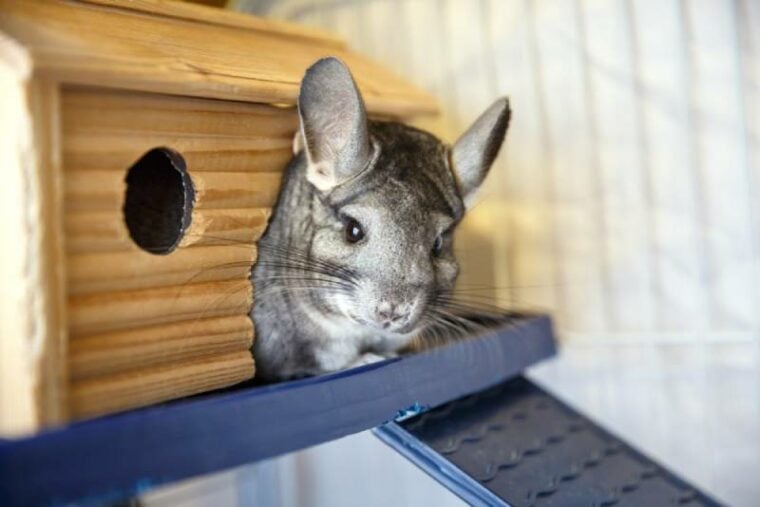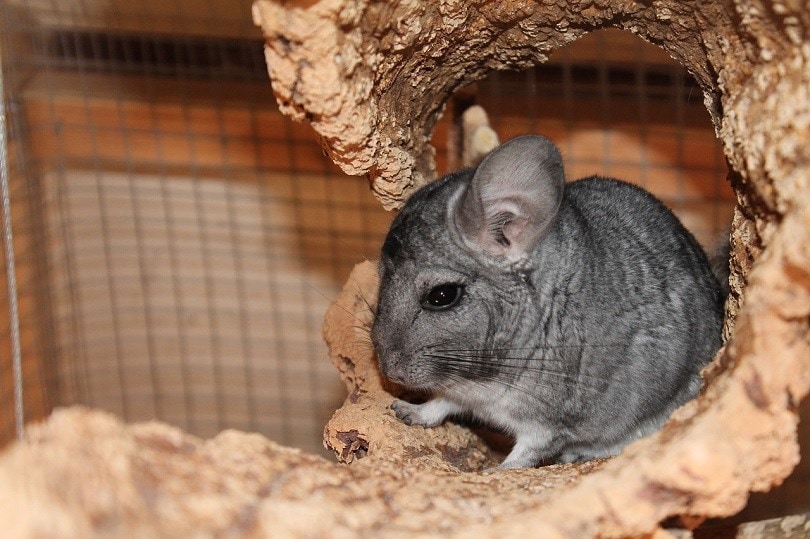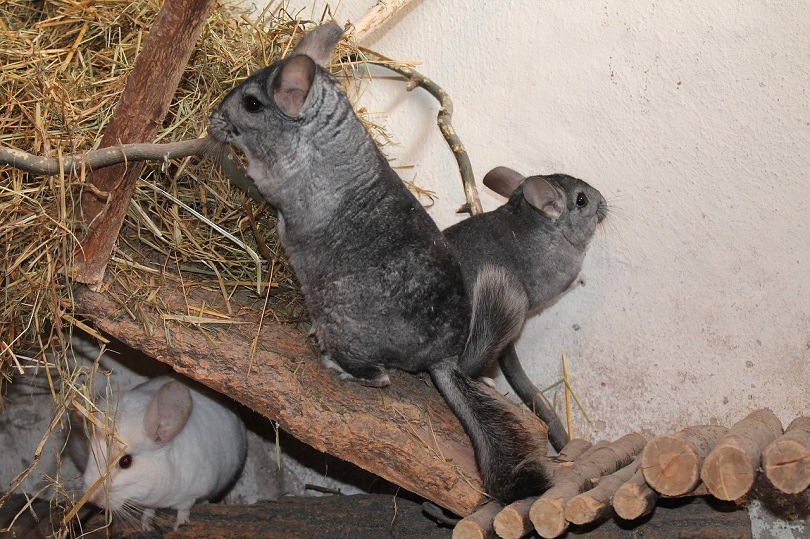
Chinchillas require some amount of light to thrive. However, the exact amount and type of light they need varies. Preferably, Chinchillas should be exposed to a full spectrum of UV light from the sun. Different wavelengths of sunlight do different things, so it is best that the Chinchilla is exposed to all of these wavelengths. However, you cannot place your Chinchilla in direct sunlight, as this can lead to overheating.
Your Chinchilla should be placed somewhere they can get indirect sunlight. Natural lighting is needed to help regulate your Chinchilla’s system. Just like humans, a Chinchilla’s body utilizes light to determine its circadian rhythm and regulate the body accordingly. Without a proper day/night cycle, the Chinchilla may start to develop health and behavioral problems.
Are Light Bulbs Sufficient?
Most Chinchillas are housed indoors and get most of their lighting indirectly through windows. Some windows do block UV spectrums and so your Chinchilla may require supplemental lighting via a UVB light bulb. Standard household light bulbs are not usually sufficient.
Lighting can even affect the gender of kits produced by Chinchillas. Cool light bulbs tend to produce higher ratios of female kits, while warm light bulbs tend to produce more male kits. Unless you’re breeding Chinchillas, this isn’t essential knowledge and the type of light bulb you use won’t matter as much.
You should keep a regular day/night cycle of 12 hours of light and 12 hours of darkness. However, this lighting doesn’t have to be exact. An automatic on/off switch can be extremely helpful in this regard, as it helps you remain consistent. Chinchillas usually sleep for around 12 to 14 hours in 24hrs.
Chinchillas are naturally partially nocturnal and so it is presumed that they don’t have the same light needs as diurnal species. There is not much research into the lighting and vitamin D requirements of Chinchillas. You should ensure that your Chinchilla isn’t exposed to heavy amounts of artificial light produced by you and your family at night, as this can interfere with a Chinchilla’s health by interrupting their dark cycle. If your Chinchilla is in an area that often has a light turned on at night, you should purchase a dark cloth to shield your Chinchilla after bedtime.
When deciding exactly which 12 hours the lightbulb should be on, consider when normal daylight hours are in your area. The lightbulb should coincide with these hours. You should also consider when you normally utilize the room, including having the TV or computer on. Consider when it is more convenient for you to schedule the 12 hours of darkness.

Can Chinchillas See in the Dark?
Yes and no. Chinchillas can see decently in the dark but do need a small amount of light to see. Somewhat unusually they are considered both nocturnal and crepuscular (active at dawn and dusk). Most domestic Chinchillas are still most active during these low-light hours. Seeing in the dark helps wild Chinchillas to avoid predators. They also live in burrows and need to be able to find their way around these dark spaces.
Your Chinchilla doesn’t require a nightlight to see at night. In fact, a dim nightlight may confuse the Chinchilla into thinking it’s a low-light time—not bedtime. After a few nights, this may mess with their sleep cycle.
Do Chinchillas Need UVB Light?
Sadly, not many studies have been done on UVB needs for Chinchillas. For many species, UVB is required to synthesize vitamin D. Without it, deficiencies develop. Therefore, many small pets require a specialized UVB bulb to provide them with the appropriate amount of UVB.
We have research pointing to the UVB needs of many other species—mostly reptiles. But we don’t have much information on Chinchillas currently, and there aren’t any official UVB supplementation amount suggestions. It has been shown that chinchillas can produce vitamin D in response to UVB light and so it is thought that some amount of exposure is required to keep them healthy1. Meaning that not all of their vitamin D requirements probably come from their diet.
Providing indirect sunlight in the day, a good Chinchilla specific diet and a UVB bulb will ensure that your chinchilla doesn’t suffer from low vitamin D levels.

Are Chinchillas Sensitive to Light?
Despite being most active during the dusky hours, Chinchillas aren’t overly sensitive to light. You definitely shouldn’t shine a flashlight on your Chinchilla, but they are perfectly fine when exposed to normal amounts of daylight. They’re about as sensitive to light as humans, despite their large eyes.
With that said, all Chinchillas should be given a burrow where they can hide and rest during the day. You should not try to keep their area dark during the day, though. If you do, your Chinchilla will believe it is night and be active again. They’re cued to be most active during periods of dim light. Let the light level be natural and allow the Chinchilla to act as they feel appropriate.
Conclusion
Chinchillas require a regular day/night cycle to thrive. Usually, this can be accomplished through indirect sunlight coming through windows. You can add a UVB light bulb if your Chinchilla doesn’t have access to indirect sunlight for one reason or another. You should not use artificial lights at night in the same room as a Chinchilla. Often, a dark sheet is recommended to cover the Chinchilla’s cage at night.
Further research is needed to determine the exact amount of light and UVB that chinchillas need and what their vitamin D requirements are.
Featured Image Credit: Geshas, Shutterstock








